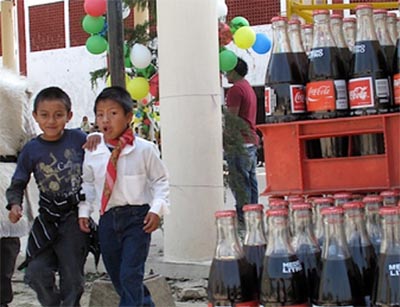Peter’s Memo: The food industry: making the world safe for junk food


Malnutrition is still a matter of life and death in many parts of the globe. But, astonishingly, most of the world’s population now lives in countries where excess weight kills more people than underweight, says the World Health Organization.
According to the WHO, some 1.25 billion adults were overweight in 2016—nearly four out of every 10 adults on earth. Another 650 million were obese. Worldwide, obesity rates have nearly tripled since 1975.
And it’s not just adults. Nearly 20 percent of children aged 5 to 19 were overweight or obese in 2016, notes the WHO.
“This shift to population-wide obesity is occurring with terrifying speed,” former WHO Director-General Margaret Chan said in 2016.
And with obesity comes a greater risk of heart disease, many cancers, and especially type 2 diabetes. So it’s no surprise that excess weight is linked to four million deaths a year worldwide.

And it’s no surprise that the worldwide obesity epidemic is unfolding as multinational food and soda companies—most of them based in the United States—are increasingly turning their sights to enormous untapped markets in less-affluent countries.
Fast food sales reportedly grew by 30 percent worldwide between 2011 and 2016, with explosive growth in Argentina, Vietnam, and Egypt. Packaged foods grew 25 percent.
Here’s the rub. In a study funded by the U.S. National Institutes of Health that tracked tens of thousands of Chinese Singaporeans for a decade, those who consumed Western fast food at least twice a week were 27 percent more likely to get diabetes, and had a 56 percent higher risk of dying of heart disease, than those who never ate fast food.
How did food companies manage to penetrate these markets so quickly?
An extensive series in the New York Times has laid out the industries’ tactics in graphic—and heart-wrenching—detail (nytimes.com/series/obesity-epidemic). A few examples:
India. Fighting a lawsuit that calls for bans on junk food and soft drink sales near schools.
Colombia. Putting pressure on government agencies to stall a soda tax.
Brazil. Donating more than $150 million to members of the National Congress.
Still, some local groups are taking on Big Food and Big Soda. According to the Times, 30 nations, including Saudi Arabia, South Africa, and India, have instituted soda taxes.
And Chile has enacted a slew of measures—including marketing restrictions, bans on cartoon characters and toys, and innovative front-of-pack labels—that have reportedly led companies to reformulate some 1,500 foods and drinks (presumably, to make them healthier). That’s no small matter in a nation where three out of four adults are overweight or obese.
As Dr. Chan has said, the obesity epidemic doesn’t represent a lack of individual willpower, but “a failure of political will to take on powerful economic operators, like the food and soda industries.”
And take them on, we will.
Peter G. Lurie, MD, MPH, President, Center for Science in the Public Interest
Photo: María Verza.
Topics

